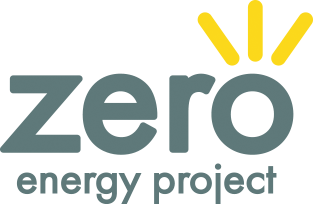Architects, engineers, and builders aspire to create sustainable buildings. Yet accurately measuring building performance throughout the design process has proved costly and time intensive. PlanIT Impact (http://www.planitimpact.com) has created a smart modeling platform. The first tool provides the fastest and most affordable solution for designers to understand the cost and ROI impact of energy and water. The solution also offers an impact score for storm water run-off and transportation. PlanIT Impact delivers this with a flexible, subscription-based cloud service.
The demand for sustainability and efficiency associated with new construction is higher than ever, as monthly energy costs constitute a clear majority (80%) of total building lifecycle expenses. Thus, sustainable construction practices promoting “Net Zero,” building designs have become a primary industry objective. To take on the challenge, PlanIT Impact was founded by experienced architects and funded by the National Science Foundation/US Ignite, the Mozilla Foundation, and Digital Sandbox, Kansas City.
PlanIT Impact’s 3D planning tool and PlanIT Impact Score™ makes it easy for architects and builders to collaborate with multiple teams and constituencies, gather data inputs in real time, and more accurately model material costs and the impact of physical attributes of the land/geo-location and structure based on federal and commercial data sources.
The PlanIT Impact assessment tool incorporates four key aspects of sustainable building design: energy, storm water run-off, water use, and transportation access with Walk Score. PlanIT Impact was successfully implemented to drive sustainability for the Milhaus urban development project in Kansas City. The project will include 182 market-rate apartments and 12,000 square feet of commercial space.
“PlanIT Impact is the industry’s first and only platform that helps designers achieve sustainability through a multi-faceted scoring derived from a large pool of open data. It works from a project’s inception to completion, and all points in between,” said Dominique Davison, AIA LEED APtm, CEO of PlanIT Impact. “Best of all, PlanIT Impact features an integrated approach that dovetails sensibly with existing LEED efficiency initiatives. This gives buildings designers great options to consider all possibilities and know the impact of those decisions.”
“This doesn’t feel like an energy modeling tool – it’s very intuitive, providing the flexibility and a wide breadth of data sources required for accuracy and timely scoring,” said Graham Still, Senior Designer for DRAW Architecture.
PlanIT Impact Benefits:
- All relevant project/design data unified into a single view, where multiple measurements and variables can be input and considered holistically
- ROI insights help define ProForma: estimated cost of building performance, simple payback
- Leverages open data with easy, dynamic retrieval of key data and pulls geometries from model
- Informed and holistic approach to resource allocation
Taking an early LEED:
PlanIT Impact Energy Module scores translate to Energy Optimization points for LEED, the benchmark for building performance. PlanIT Impact makes early, data-driven decisions that track to LEED projects while integrating into the web of interaction between differing project teams. The tool takes input from any direction and dynamically updates scoring so that architects know exactly how decisions impact the score. For uninterrupted workflow, PlanIT Impact supports leading software tools, including SketchUp, Rhino, and Revit. PlanIT Impact currently indirectly supports several LEED categories/credits.
Leveraging Open Data:
PlanIT Impact takes advantage of the Open Data Movement to contribute geo-specific, accurate data into the sustainability performance score. Open data sources include federal government entities and private companies. US Census Data is used to understand local drive times, and NOAA is providing local rainfall/weather data. WalkScore is now publishing statistics regarding the precise proximity of desired resources, such as parks, stores, libraries and businesses.
About PlanIT Impact:
PlanIT Impact is a web-based platform that operates with the mission of making sustainable design accessible and achievable for all building design. We leverage local and national data to inform digital models produced by architects, designers and planners to help them understand how to optimize resources, including ROI, and minimize impact on the environment. PlanIT Impact allows companies to make design decisions not based just on gut, but based on real-time data. It allows them to better understand their costs and make decisions that improve the performance of their buildings, making every building more sustainable. Please Visit http://www.planitimpact.com
SOURCE PlanIT Impact


